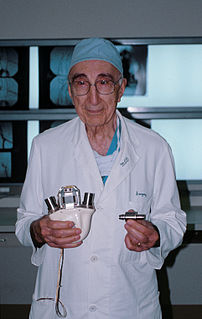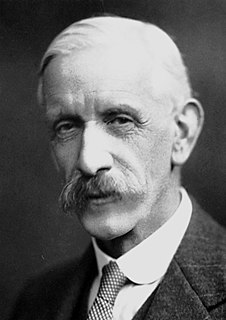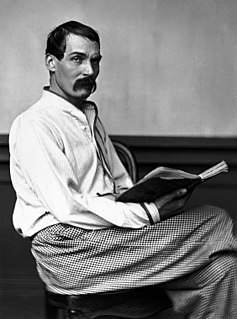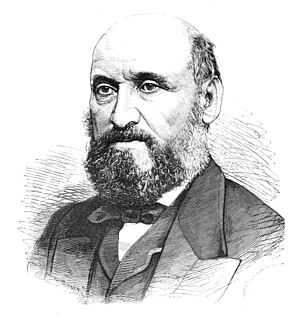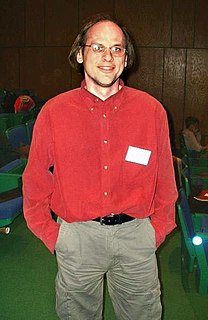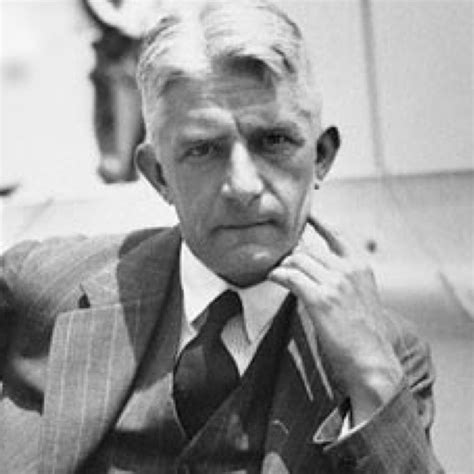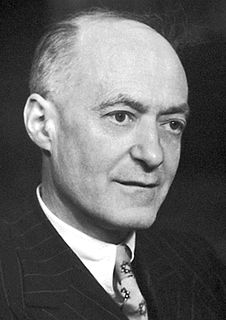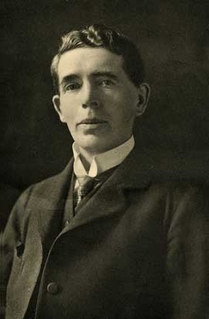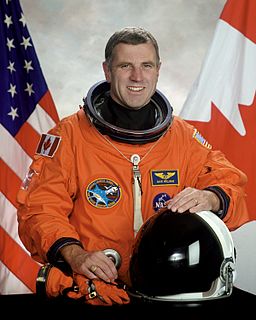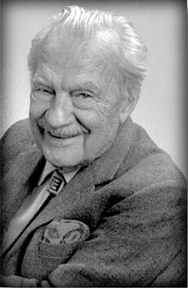Top 890 Sciences Quotes & Sayings - Page 15
Explore popular Sciences quotes.
Last updated on April 20, 2025.
For there is a great difference in delivery of the mathematics , which are the most abstracted of knowledges, and policy , which is the most immersed. And howsoever contention hath been moved , touching a uniformity of method in multiformity of matter, yet we see how that opinion, besides the weakness of it, hath been of ill desert towards learning, as that which taketh the way to reduce learning to certain empty and barren generalities; being but the very husks and shells of sciences, all the kernel being forced out and expulsed with the torture and press of the method.
The role of metaphysics in relation to other disciplines, whether philosophical or not and including the natural sciences, is thus a foundational role. Lack of clarity in the concepts of metaphysics implies lack of clarity in other disciplines - both theoretical and practical disciplines - employing those concepts or employing concepts that depend on those of metaphysics.
I think of myself as a social scientist. In order to get hired and to get promoted, we're forced to declare a disciplinary and sub-disciplinary specialty, so I am a psychologist and I am a social psychologist within that. But I think the exciting thing is to think about the social sciences in general and the nature of society. It's one of the hardest things to think about, because our brains aren't designed to think about these emergent entities. We're not good at it.
Biology occupies a position among the sciences at once marginal and central. Marginal because-the living world constituting but a tiny and very "special" part of the universe-it does not seem likely that the study of living beings will ever uncover general laws applicable outside the biosphere. But if the ultimate aim of the whole of science is indeed, as I believe, to clarify man's relationship to the universe, then biology must be accorded a central position . . .
As an adult I discovered that I was a pretty good autodidact, and can teach myself all kind of things. And developed a great interest in a number of different things from how to build a street hot rod from the ground up to quantum mechanics, and those two different kinds of mechanics, and it was really in the sciences, quantum mechanics, molecular biology, I would begin looking at these things looking for ideas, but in fact you don't read it for ideas you read it for curiosity and interest in the subject.
All that a university or final highest school. can do for us is still but what the first school began doing--teach us to read. We learn to read in various languages, in various sciences; we learn the alphabet and letters of all manner of books. But the place where we are to get knowledge, even theoretic knowledge, is the books themselves. It depends on what we read, after all manner of professors have done their best for us. The true university of these days is a collection of books.
In the field of consciousness research-and also in physics and astronomy-we are breaking past the cause-and-effect, mechanistic way of interpreting things. In the biological sciences, there is a vitalism coming in that goes much further toward positing a common universal consciousness of which our brain is simply an organ. Consciousness does not come from the brain. The brain is an organ of consciousness. It focuses consciousness and pulls it in and directs it through a time and space field. But the antecedent of that is the universal consciousness of which we are all just a part.
Studying music encourages self-discipline and diligence, traits that carry over into intellectual pursuits and that lead to effective study and work habits. An association of music and math has, in fact, long been noted. Creating and performing music promotes self-expression and provides self-gratification while giving pleasure to others. In medicine, increasing published reports demonstrate that music has a healing effect on patients. For all these reasons, it deserves strong support in our educational system, along with the other arts, the sciences, and athletics.
As to ethics, unfortunately, we are still at sea. We never did have any popular base for what little ethics we knew, except the religious theories, and now that our faith is shaken in those theories we cannot account for ethics at all. It is no wonder we behave badly, we are literally ignorant of the laws of ethics, which is the simplest of sciences, the most necessary, the most continuously needed. The childish misconduct of our 'revolted youth' is quite equaled by that of older people, and neither young nor old seem to have any understanding of the reasons why conduct is 'good' or 'bad.
The significance of the vast Islamic scientific tradition for Muslims and especially for young Muslims today is not only that it gives them a sense of pride in their own civilization because of the prestige that science fhas in the present day world. It is furthermore a testament to the way Islam was able to cultivate various sciences extensively without becoming alienated from the Islamic world view and without creating a science whose application would destroy the world of nature and the harmony that must exist between man and the natural environment.
The progress of science in furnishing the government with means of espionage is not likely to stop with wire tapping. Ways may some day be developed by which the government, without removing papers from secret drawers, can reproduce them in court, and by which it will be enabled to expose to a jury the most intimate occurrences of the home. Advances in the psychic and related sciences may bring means of exploring unexpressed beliefs, thoughts and emotions. 'That places the liberty of every man in the hands of every petty officer' was said by James Otis of much lesser intrusions than these.
The thing that distinguishes social systems from physical or even biological systems is their incomparable (and embarrassing) richness in special cases. Generalizations in the social sciences are mere pathways which lead through a riotous forest of individual trees, each a species unto itself. The social scientist who loses this sense of the essential individuality and uniqueness of each case is all too likely to make a solemn scientific ass of himself, especially if he thinks that his faceless generalizations are the equivalents of the rich vareity of the world.
Elections, especially of representatives and counselors, should be annual, there not being in the whole circle of the sciences a maxim more infallible than this, "where annual elections end, there slavery begins." These great men ... should be (chosen) once a year-Like bubbles on the sea of matter bourne, they rise, they break, and to the sea return. This will teach them the great political virtues of humility, patience, and moderation, without which every man in power becomes a ravenous beast of prey.
There's always a question when you invest. Are you too early, are you too late, or are you just right? And there was a lot of hype about life sciences, around the sequencing of the human genome and a lot of people concluded that's not really there. But by the way, there was a lot of hype around the digital revolution just about the time of 2000 and the human genome, and it turns out that some of the world's biggest, most powerful companies are the survivors post that crash.
It is an old saying, abundantly justified, that where sciences meet there growth occurs. It is true moreover to say that in scientific borderlands not only are facts gathered that [are] often new in kind, but it is in these regions that wholly new concepts arise. It is my own faith that just as the older biology from its faithful studies of external forms provided a new concept in the doctrine of evolution, so the new biology is yet fated to furnish entirely new fundamental concepts of science, at which physics and chemistry when concerned with the non-living alone could never arrive.
Academy of Motion Picture Arts and Sciences, fellow members of the motion picture industry and honored guests. This is one of the happiest moments of my life, and I want to thank each one of you who had a part in selecting me for one of their awards for your kindness. It has made me feel very, very humble and I shall always hold it as a beacon for anything that I may be able to do in the future. I sincerely hope I shall always be a credit to my race and to the motion picture industry. My heart is too full to tell you just how I feel, and may I say thank you and God bless you.
The soul sins therefore because, while aiming at good, it makes mistakes about the good, because it is not primary essence. And we see many things done by the Gods to prevent it from making mistakes and to heal it when it has made them. Arts and sciences, curses and prayers, sacrifices and initiations, laws and constitutions, judgments and punishments, all came into existence for the sake of preventing souls from sinning; and when they are gone forth from the body, Gods and spirits of purification cleanse them of their sins.
Books come at my call and return when I desire them; they are never out of humor and they answer all my questions with readiness. Some present in review before me the events of past ages; others reveal to me the secrets of Nature. These teach me how to live, and those how to die; these dispel my melancholy by their mirth, and amuse me by their sallies of wit. Some there are who prepare my soul to suffer everything, to desire nothing, and to become thoroughly acquainted with itself. In a word, they open the door to all the arts and sciences.
[Shahrazad] had perused the books, annals and legends of preceding Kings, and the stories, examples and instances of by gone men and things; indeed it was said that she had collected a thousand books of histories relating to antique races and departed rulers. She had perused the works of the poets and knew them by heart; she had studied philosophy and the sciences, arts and accomplishments; and she was pleasant and polite, wise and witty, well read and well bred.
We find sects and parties in most branches of science; and disputes which are carried on from age to age, without being brought to an issue. Sophistry has been more effectually excluded from mathematics and natural philosophy than from other sciences. In mathematics it had no place from the beginning; mathematicians having had the wisdom to define accurately the terms they use, and to lay down, as axioms, the first principles on which their reasoning is grounded. Accordingly, we find no parties among mathematicians, and hardly any disputes.
Each of the major sciences has contributed an essential ingredient in our long retreat from an initial belief in our own cosmic importance. Astronomy defined our home as a small planet tucked away in one corner of an average galaxy among millions; biology took away our status as paragons created in the image of God; geology gave us the immensity of time and taught us how little of it our own species has occupied.
Suppose you came across a woman lying on the street with an elephant sitting on her chest. You notice she is short of breath. Shortness of breath can be a symptom of heart problems. In her case, the much more likely cause is the elephant on her chest. For a long time, society put obstacles in the way of women who wanted to enter the sciences. That is the elephant. Until the playing field has veen leveled and lingering stereotypes are gone, you can't even ask the question.
Without the instruments and accumulated knowledge of the natural sciences... humans are trapped in a cognitive prison. They are like intelligent fish born in a deep shallowed pool. Wondering and restless, longing to reach out, they think about the world outside. They invent ingenious speculations and myths about the origin of the confining waters, of the sun and the sky and the stars above , and the meaning of their own existence. But they are wrong, always wrong because the world is too remote from ordinary experience to be merely imagined.
Make everything as simple as possible, but not simpler. A man should look for what is, and not for what he thinks should be. We cannot solve our problems with the same thinking we used when we created them. A question that sometimes drives me hazy: am I or are the others crazy? Any intelligent fool can make things bigger and more complex... It takes a touch of genius - and a lot of courage to move in the opposite direction. All religions, arts and sciences are branches of the same tree. It's not that I'm so smart, it's just that I stay with problems longer.
The advantages of a uniform statistical nomenclature, however im- perfect, are so obvious, that it is surprising no attention has been paid to its enforcement in bills of mortality. Each disease has in many instances been denoted by three or four terms, and each term has been applied to as many different diseases ; vague, inconvenient names have been employed, or complications have been registered, instead of primary diseases. The nomenclature is of as much importance in this depart- ment of inquiry as weights and measures in the physical sciences, and should be settled without delay.
Sociological method as we practice it rests wholly on the basic principle that social facts must be studied as things, that is, as realities external to the individual. There is no principle for which we have received more criticism; but none is more fundamental. Indubitably for sociology to be possible, it must above all have an object all its own. It must take cognizance of a reality which is not in the domain of other sciences... there can be no sociology unless societies exist, and that societies cannot exist if there are only individuals.
Mathematics can have its problems, but it's actually hasn't seen a lot of the problems as some of the other sciences and so much of it in what people are doing is completely useless. Nobody kind of in really cares very much. You don't really have kind of right and left and people in ideology coming in because there isn't any. It just doesn't actually connect up to the kinds of things that people ideologically worry about. So most of mathematics just doesn't tell you anything one way or another about global warming or about healthcare or about any number of things that you might care about.
Kepler's discovery would not have been possible without the doctrine of conics. Now contemporaries of Kepler-such penetrating minds as Descartes and Pascal-were abandoning the study of geometry ... because they said it was so UTTERLY USELESS. There was the future of the human race almost trembling in the balance; for had not the geometry of conic sections already been worked out in large measure, and had their opinion that only sciences apparently useful ought to be pursued, the nineteenth century would have had none of those characters which distinguish it from the ancien régime.
If we wish to imitate the physical sciences, we must not imitate them in their contemporary, most developed form; we must imitate them in their historical youth, when their state of development was comparable to our own at the present time. Otherwise we should behave like boys who try to copy the imposing manners of full-grown men without understanding their raison d' être, also without seeing that in development one cannot jump over intermediate and preliminary phases.
Indeed, we need not look back half a century to times which many now living remember well, and see the wonderful advances in the sciences and arts which have been made within that period. Some of these have rendered the elements themselves subservient to the purposes of man, have harnessed them to the yoke of his labors and effected the great blessings of moderating his own, of accomplishing what was beyond his feeble force, and extending the comforts of life to a much enlarged circle, to those who had before known its necessaries only.
In all our academies we attempt far too much. ... In earlier times lectures were delivered upon chemistry and botany as branches of medicine, and the medical student learned enough of them. Now, however, chemistry and botany are become sciences of themselves, incapable of comprehension by a hasty survey, and each demanding the study of a whole life, yet we expect the medical student to understand them. He who is prudent, accordingly declines all distracting claims upon his time, and limits himself to a single branch and becomes expert in one thing.
If moral statements are about something, then the universe is not quite as science suggests it is, since physical theories, having said nothing about God, say nothing about right or wrong, good or bad. To admit this would force philosophers to confront the possibility that the physical sciences offer a grossly inadequate view of reality. And since philosophers very much wish to think of themselves as scientists, this would offer them an unattractive choice between changing their allegiances or accepting their irrelevance.
The natural sciences are sometimes said to have no concern with values, nor to seek morality and goodness, and therefore belong to an inferior order of things. Counter-claims are made that they are the only living and dynamic studies... Both contentions are wrong. Language, Literature and Philosophy express, reflect and contemplate the world. But it is a world in which men will never be content to stay at rest, and so these disciplines cannot be cut off from the great searching into the nature of things without being deprived of life-blood.
A different conception of society, very different from that which now prevails, is in process of formation. Under the name of Anarchy, a new interpretation of the past and present life of society arises, giving at the same time a forecast as regards its future, both conceived in the same spirit as the above-mentioned interpretation in natural sciences. Anarchy, therefore, appears as a constituent part of the new philosophy, and that is why Anarchists come in contact, on so many points, with the greatest thinkers and poets of the present day.
One dictionary that I consulted remarks that "natural history" now commonly means the study of animals and plants "in a popular and superficial way," meaning popular and superficial to be equally damning adjectives. This is related to the current tendency in the biological sciences to label every subdivision of science with a name derived from the Greek. "Ecology" is erudite and profound; while "natural history" is popular and superficial. Though, as far as I can see, both labels apply to just about the same package of goods.
"Happy he that knows Thee, even if he knows nothing else," says St. Augustine. If we knew all the sciences and knew not how to love Jesus Christ, our knowledge shall profit us nothing to eternal life. But if we know how to love Jesus Christ, we shall know all things, and shall be happy for eternity.
Fortunately or otherwise we live at a time when the average individual has to know several times as much in order to keep informed as he did only thirty or forty years ago. Being "educated" today requires not only more than a superficial knowledge of the arts and sciences, but a sense of inter-relationship such as is taught in few schools. Finally, being "educated" today, in terms of the larger needs, means preparation for world citizenship; in short, education for survival.
I'm thinking about the idea of poetic license. People say that about certain writers: "Oh, the grammar sucks, but it's just the poetic license." We accept it as being an art form of sorts: the incorrect rearrangement of meaningful things. Unlike sciences, literature as art relies on societal acceptance of a certain vocabulary. We're just making sounds out of our mouths if we don't both accept that what I'm saying has very significant meanings, and I'm accurately targeting what vocabulary I use and how I arrange each word.
But the idols of the Market Place are the most troublesome of all: idols which have crept into the understanding through their alliances with words and names. For men believe that their reason governs words. But words turn and twist the understanding. This it is that has rendered philosophy and the sciences inactive. Words are mostly cut to the common fashion and draw the distinctions which are most obvious to the common understanding. Whenever an understanding of greater acuteness or more diligent observation would alter those lines to suit the true distinctions of nature, words complain.
I may remind you that history is not a branch of literature. The facts of history, like the facts of geology or astronomy, can supply material for literary art; for manifest reasons they lend themselves to artistic representation far more readily than those of the natural sciences; but to clothe the story of human society in a literary dress is no more the part of a historian as a historian, than it is the part of an astronomer as an astronomer to present in an artistic shape the story of the stars.
They have never affirm'd any thing, concerning the cause, till the trial was past: whereas, to do it before, is a most venomous thing in the making of Sciences: for whoever has fix'd on his Cause, before he has experimented; can hardly avoid fitting his Experiment, and his Observations, to his Own Cause, which he had before imagin'd; rather than the Cause to the Truth of the Experiment itself. Referring to experiments of the Aristotelian mode, whereby a preconceived truth would be illustrated merely to convince people of the validity of the original thought.
There is (gentle reader) nothing (the works of God only set apart) which so much beautifies and adorns the soul and mind of man as does knowledge of the good arts and sciences . Many arts there are which beautify the mind of man; but of all none do more garnish and beautify it than those arts which are called mathematical , unto the knowledge of which no man can attain, without perfect knowledge and instruction of the principles, grounds, and Elements of Geometry.
One of the things that's really exciting from my perspective is that Canada is one of the major spacefaring nations. The list of our achievements is profound and significant, and it's not just in robotics, it's also in the life-sciences research experiments that take place on board and other space-science experiments. I'd love to see Canada go from being a major spacefaring nation in low-Earth-orbit missions to those beyond, making sure we're part of those missions to Mars - not just from a technology perspective, but sending humans into beyond-Earth orbit.
"The Universe repeats itself, with the possible exception of history." Of all earthly studies history is the only one that does not repeat itself. ... Astronomy repeats itself; botany repeats itself; trigonometry repeats itself; mechanics repeats itself; compound long division repeats itself. Every sum if worked out in the same way at any time will bring out the same answer. ... A great many moderns say that history is a science; if so it occupies a solitary and splendid elevation among the sciences; it is the only science the conclusions of which are always wrong.
You can put this another way by saying that while in other sciences the instruments you use are things external to yourself (things like microscopes and telescopes), the instrument through which you see God is your whole self. And if a man's self is not kept clean and bright, his glimpse of God will be blurred - like the Moon seen through a dirty telescope. That is why horrible nations have horrible religions: they have been looking at God through a dirty lens.
I... [proposed] three distinct grades of education, reaching all classes. 1. Elementary schools for all children generally, rich and poor. 2. Colleges for a middle degree of instruction, calculated for the common purposes of life and such as should be desirable for all who were in easy circumstances. And 3d. an ultimate grade for teaching the sciences generally and in their highest degree... The expenses of [the elementary] schools should be borne by the inhabitants of the county, every one in proportion to his general tax-rate. This would throw on wealth the education of the poor.
There is no evolutionary pressure to create minds capable of forming sciences; it just happened. Evolutionary pressure has not led to higher rates of reproduction for people capable of solving scientific problems or creating new scientific ideas. So if, in fact, the science-forming capacities evolved for other reasons, it would not be too surprising if those particular structures that have developed proved to be rather special in their nature, reflecting the contingencies of their evolution or the working of physical law.
But, contrary to the lady's prejudices about the engineering profession, the fact is that quite some time ago the tables were turned between theory and applications in the physical sciences. Since World War II the discoveries that have changed the world are not made so much in lofty halls of theoretical physics as in the less-noticed labs of engineering and experimental physics. The roles of pure and applied science have been reversed; they are no longer what they were in the golden age of physics, in the age of Einstein, Schrödinger, Fermi and Dirac.
Archaeology is a science, and like all sciences, has its limitations. For one, archaeological discoveries made in the past centuries have been reappraised and reinterpreted by more recent findings. Some of the older positive claims, as well as most of the negative criticisms of the Bible, have changed, usually for the better. For another, the actual amount of archaeological evidence is quite small. It has been estimated that less than 1% of archaeological sites in the Holy Land have been excavated, and those that have been excavated have only been partially excavated.
Thou shalt understand that it is a science most profitable, and passing all other sciences, for to learn to die. For a man to know that he shall die, that is common to all men; as much as there is no man that may ever live or he hath hope or trust thereof; but thou shalt find full few that hath this cunning to learn to die. I shall give thee the mystery of this doctrine; the which shall profit thee greatly to the beginning of ghostly health, and to a stable fundamental of all virtues.







